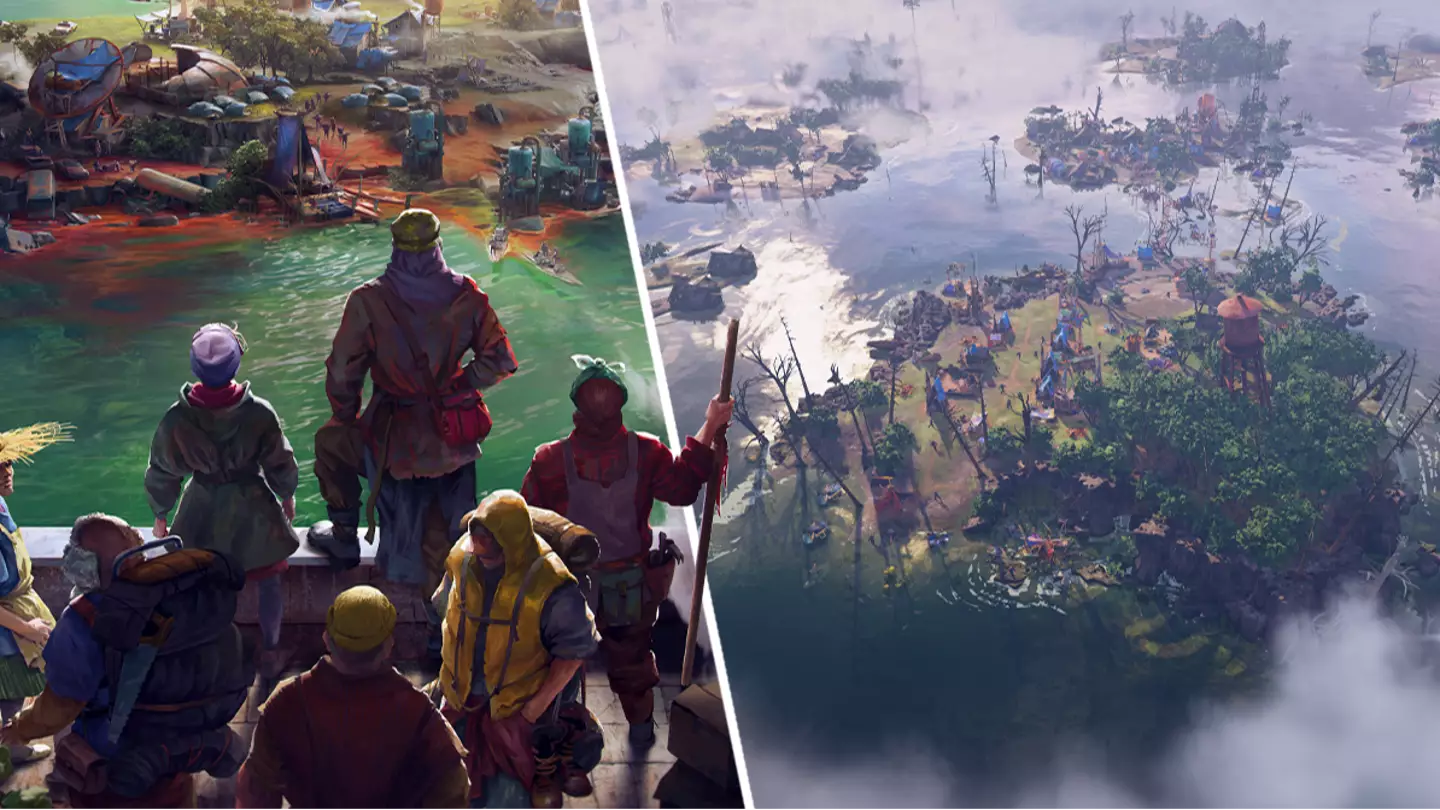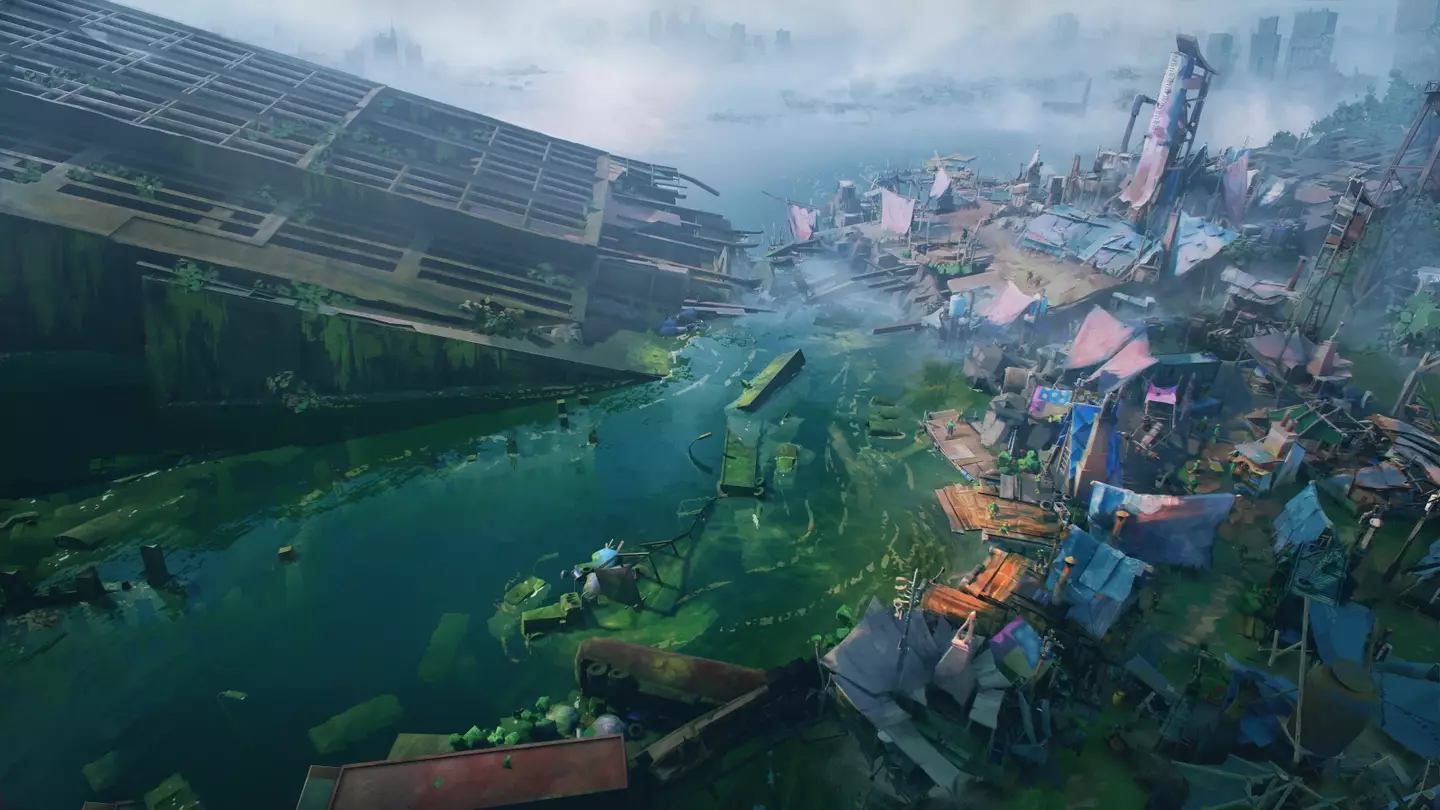
Clicking away during my preview hands-on with Floodland, I completely lose track of time. I tell myself when I sit down, just 20 minutes, you’ve places to be, people to see. This is Gamescom after all; there’s always another appointment. And yet I’m transfixed, entirely engrossed in giving my group of survivors the basics they need - shelter, clean water, a supply of food - to regain some semblance of a life worth living after the game’s world - our world - has been devastated by rising sea levels.
Watch the reveal trailer for Floodland below
A strategy title that isn’t afraid of showing players the reality that could await their children, and their children’s children - or even themselves, sooner than later, if we are indeed dangerously close to passing notable environmental tipping points - Floodland plays out in a fairly relaxed fashion. Initially, at least, as I’m only getting these people started in my demo - later, the city-builder slash survival sim will certainly up its stakes as nomadic factions connect with one another and the commodity that is livable dry land is contested. The more people you have in your settlement, the greater their demands and so the more resources you’ll need - and resources are at a premium in this mostly drowned world. Tarpaulins become tents and the waste that litters the landscape is converted into building materials - slowly, steadily, people find a purpose, a reason to hope again.
But for its makers, Floodland is an important statement of where we are with the climate crisis - which is to say, few are doing close to enough to face up to the challenges before us. We progress culturally, technologically, as a society; but if the waters do rise, when the waters do rise, it could put us back decades, or centuries. This is what game designer Kacper Kwiatkoski (who previously worked on This War of Mine) at the title’s Polish developers Vile Monarch wants to make crystal clear to players, the game’s goal being “not to preach but to explore choices, consequences and the concept of responsibility from various angles”.
Advert

Taking cues from fiction like The Road and Children of Men, Floodland’s colourful aesthetic is pleasing on the eye but shouldn’t be misinterpreted as representing a chilled game of low stakes. This is, says Kwiatkoski, “a mature and realistic post apocalypse” - not one full of shambling undead nasties or war-raging robots after a powerful AI’s gone rogue, but the consequences of mankind’s own actions and inaction. It’s very easy to click with this one gameplay wise though, with a lot going on around the screen but plenty of cues as to what to do and where to direct your growing population. (And I say this as someone who doesn’t generally gravitate towards strategy titles.) The map can be spun around freely and new territory opened up through exploration; while dilapidated buildings and abandoned homes, all half-collapsed and rotting, can be investigated not only for supplies but also to find stragglers to welcome to your group.
As well as objectives to tick off, there’s your group’s morale to keep an eye on, and research to progress - as you play you’ll unlock skill points that can be spent on developing facilities and technology (basic though it is) for improving your society, somewhat. Beliefs matter, too - whatever ‘clan’ you begin with has its own set of values and follows its own moral compass, but other groups won’t feel the same way, so it’ll be interesting to see how conflict is managed and resolved in Floodland when the full game releases on PC, published by Ravenscourt, on 15 November 2022. It'll also be fascinating to see just how many players who become absorbed by this title find themselves reflecting on their own relationship with the world around us, as perhaps it's the spark a few of us need to do things differently.
